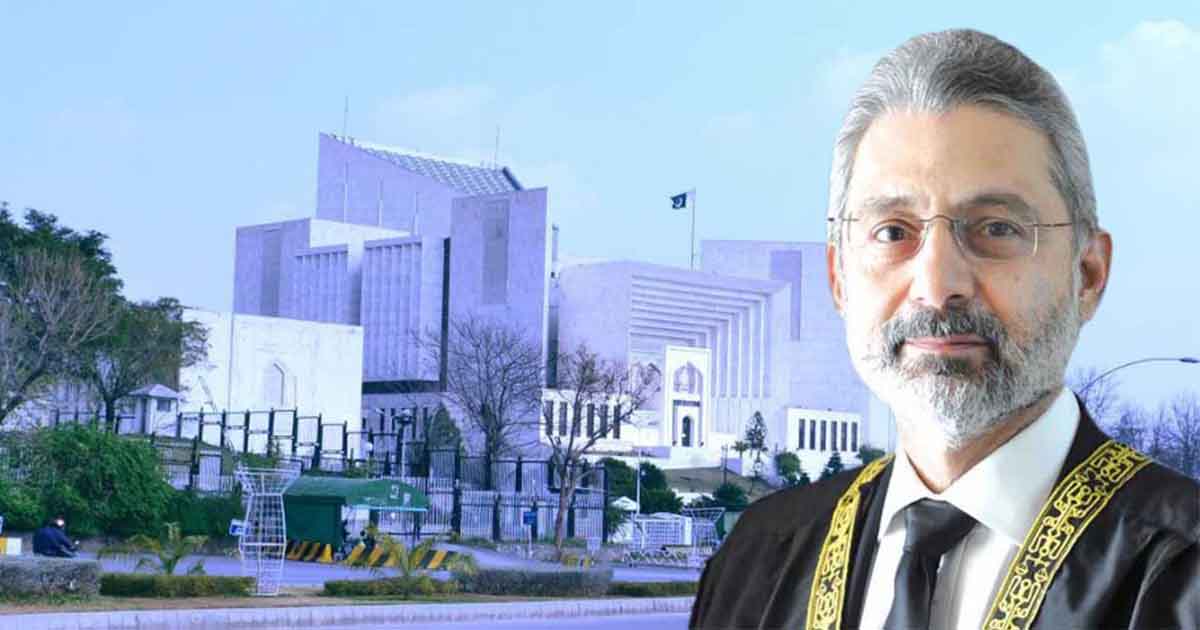In a significant ruling, the Supreme Court of Pakistan today overturned previous decisions by the Peshawar High Court and the Election Commission of Pakistan (ECP), granting the Pakistan Tehreek-e-Insaaf (PTI) party entitlement to specific reserved seats. This verdict came after a series of legal challenges and extensive hearings.
The decision, led by a 13-member full bench headed by Chief Justice of Pakistan Qazi Faiz Isa, was broadcast live on TV and written by Justice Mansoor Ali Shah. The judgment was supported by an 8 to 5 majority within the court.
Previously, the Election Commission and the Peshawar High Court had ruled against allotting reserved seats to the Sunni Ittehad Council, which PTI challenged as unconstitutional. The Supreme Court’s decision now mandates that the ECP redistribute these seats, affirming PTI’s status as a legitimate political party.
The Supreme Court has directed that 39 of the 80 independent members are identified with Tehreek-e-Insaaf. The remaining 41 must clarify from which party they contested the election within 15 days. The ECP is tasked with confirming these memberships and updating the list of specific seats accordingly.
This ruling also impacts other political parties, as the seats previously held by the Sunni Ittehad Council will now be distributed among them, including the Muslim League (N), People’s Party, MQM Pakistan, and Jamiat Ulema Islam Fazlur Rehman.
The legal proceedings were complex and included significant interactions among the justices. Key points of contention included the internal democracy within PTI and the implications of depriving a political party of its electoral symbol. The court emphasized that withdrawing an election symbol does not disqualify a party from the elections.
This case has seen numerous developments over the months, including multiple hearings and discussions about the constitutional rights of political parties and their members. The Supreme Court’s final decision reflects a comprehensive examination of these issues, aiming to uphold the constitutional mandate and ensure fair representation in the assemblies.
The verdict marks a critical moment in Pakistan’s political landscape, reaffirming the judiciary’s role in resolving electoral disputes and defining the parameters of political party entitlements under the law.



